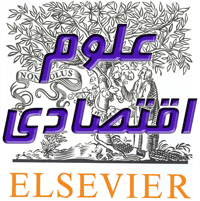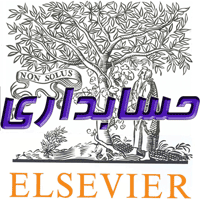دانلود مقاله isi بررسی نقش سن در نقل و انتقالات دانش ضمنی و عملکرد صريح
دانلود رایگان مقاله الزویر در مورد بررسی نقش سن در نقل و انتقالات دانش ضمنی و عملکرد صريح (کلیک کنید)
توضیحات :
وبسایت مکاله اقدام به ارائه پروژه ی ساینس دایرکت با فرمت pdf، از انتشارات الزویر برای رشته علوم اقتصادی، و با عنوان بررسی نقش سن در نقل و انتقالات دانش ضمنی و عملکرد صريح ، نموده است.
مشخصات این مقاله :
عنوان مقاله :
Transfers of tacit vs. explicit knowledge and performance in international joint ventures: The role of age
ترجمه فارسی عنوان :
بررسی نقش سن در نقل و انتقالات دانش ضمنی و عملکرد صريح در سرمايه گذاری مشترک بين المللي
سال انتشار : 2015
متعلق به مجله یا ژورنال : نشریه نقد و بررسی تجارت بین الملل – International Business Review
فرمت: PDF
تعداد صفحات: 13
شماره پروژه: 5087
کلمات کلیدی :
Age,Explicit knowledge,International joint ventures,Knowledge transfer,Korea,Performance,Tacit knowledge
سن، دانش صريح، سرمايه گذاری مشترک بين المللی، انتقال دانش به جامعه، کشور کره، کارايی، دانش ضمنی
چکیده :
Abstract
This paper studies the transfer of tacit and explicit knowledge from foreign parents to international joint ventures (IJVs) and the impact of these two types of knowledge transfers on the performance of young and mature IJVs. We estimate a structural equation model using survey data from 334 Korean joint ventures and find support for our hypotheses regarding IJV age, knowledge transfers, and performance.Our results show that IJV age is positively associated with the transfer of tacit knowledge, but not with the transfer of explicit knowledge. In contrast, the transfer of tacit knowledge has a significant impact on the performance of both young and mature IJVs, while the transfer of explicit knowledge only has a significant effect on the performance of mature IJVs. These results confirm the important role of IJV age as a driver of knowledge transfers in IJVs, and as a moderator of their effects on performance.
مقدمه این مقاله :
Introduction
Globalization and the intensification of domestic competition have led many firms to seek overseas markets (Elango & Pattnaik,2007; Kauser & Shaw, 2004; Teegen & Doh, 2002). Geographical diversification, rapid technological progress, and changing social,political and economic environments are creating new challenges for businesses (Culpan, 2002). To meet these new challenges, firms are required to expand their knowledge resources. Few firms possess all of the information and know-how needed to cope effectively with the dynamic and complex business environments of globalizing markets, and often create partnerships across borders to acquire knowledge resources from their foreign partners (Kale, Singh, & Perlmutter, 2000). However, cross-border collaboration between organizations is risky and difficult to manage, and less than half of such alliances achieve their goals (Bamford, Ernst, & Gubini, 2004).Thus, it is important for the field of international business to improve understanding of the factors that may influence knowledge transfers in joint ventures, and their impacts on firm performance (Kogut,1988; Suseno & Ratten, 2007). Knowledge transfer is obviously not the only challenge and motive for all international joint ventures (IJVs), but abundant research has shown that effective knowledge transfer is a critical factor for alliances’ survival and performance (Lane, Salk, & Lyles, 2001; Lyles & Salk, 1996; Pak, Ra, & Park, 2009; Suseno & Ratten,2007). To study the process of knowledge transfer and its impact on performance, researchers often distinguish between tacit and explicit knowledge, because the processes for each type of knowledge transfer and their resource requirements differ significantly (Nonaka, 1994). Unfortunately, accumulated research on the performance effects of tacit and explicit knowledge has provided inconsistent results (Becerra, Lunnan, & Huemer, 2008). For instance, in their sample of Hungarian IJVs, Dhanaraj, Lyles, Steensma, and Tihanyi (2004) show positive performance effects for explicit knowledge transfer, but a surprising negative coefficient for tacit knowledge. On the contrary, Anh, Baughn, Hang, and Neupert (2006) find insignificant performance effects for explicit knowledge transfer and a positive impact for tacit knowledge transfer in their Vietnamese IJVs sample. Becerra et al. (2008) conjecture that these inconsistencies in findings may stem from differences in the contexts in which knowledge transfers occur.
توجه :
– این مقاله به صورت کامل و با فرمت پی دی اف آماده خرید اینترنتی و دانلود آنی میباشد.
توضیحات بیشتر در مورد پروژه :
در این مقاله خواهید خواند که انتقال دانش نهان و عيان از والدين خارجی به سرمايه گذاران بين المللی بر عملکرد JVS چه تاثيري دارد. بر اساس اين نتايج به نقش مهم سن IJV به عنوان يک کاتاليزر انتقال دانش پی مي بريم.
دانلود رایگان مقاله الزویر در مورد بررسی نقش سن در نقل و انتقالات دانش ضمنی و عملکرد صريح (کلیک کنید)


